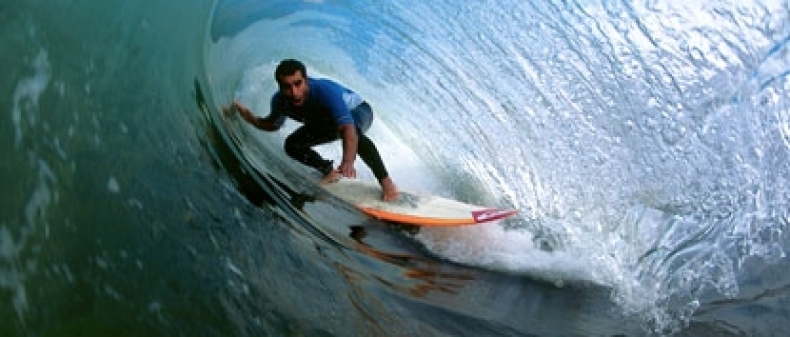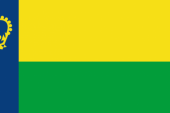
Credit: Gonzalo Barandiaran
By: Stephen Carlick
I’ve been told numerous times by different residents here that “you can’t come to Los Angeles without a plan.” So many young people from Toronto, New York, and other points along the Eastern side of the continent idealistically assume that their dreams will come true in “La La Land,” that it’s brimming with opportunity for anyone with an idea and a nice haircut – that life here is easy. So in January, when my friends in Toronto found out I was moving to Venice Beach, almost all of them made some varying statement on the same jocular theme: “Surf’s up, brah!” To them, and admittedly to me as well, life in Southern California seemed like it would be all fun and games: lazing about in the sun, taking everything way too easily, and of course, surfing.
I always wanted to try surfing, and I don’t like trying things unless I’m almost certain I’ll succeed; I’m vain like that. So because I skateboarded as a teenager (my claim to fame was being able to ollie over my backpack), snowboarded casually, and have always been a strong swimmer, I assumed that if a mangy-haired beach bum with an oscillating outthrust pinky and thumb could surf, then surely I could, too. Surfing, however, turned out to be a funny microcosm of life in Southern California; it’s not the cakewalk that we East Coasters think it is.
You couldn’t tell me that in mid-October, though. During my week-long visit to scope Venice out, I headed to the beach with excitement and a healthy dose of mistaken self-assurance, having taken a hilariously confident vow: I was going to ride a wave. An hour or so later, I was bleeding in three places, out of breath, and full of saltwater from being held too long under four- and-five-foot waves. It took me two shivering hours on a beach blanket wrapped up in two full-size towels, an Oxford shirt, and my girlfriend’s denim jacket to recuperate. A week later, back in Toronto, I told people via Facebook, “I surfed!” Her response: “Sort of.”
For a sport that, like Los Angeles, seemed so frivolous and lackadaisical, surfing takes careful preparation. It’s not just about having the proper equipment – a properly waxed board and a wetsuit to protect from both the ocean’s numbing chill and cuts or scrapes – but mental preparation and oceanographic knowledge, too. That’s not to say surfing can’t be leisurely. Once you’re good enough, it’s an exhilarating, almost transcendent endeavour. But getting there takes discipline, a surprisingly ubiquitous practice in Los Angeles, despite its being known for what a Toronto friend of mine once called “wanton excess.”
Surfing is not only technically difficult; it takes incredible stamina, especially when you’re a beginner. Learning to balance on the board, even just on your stomach, is extremely difficult, especially with ocean waves half your height pushing you around. If you lose your balance and fall off the board, you need to summon the strength not only to jump back up onto it, but to paddle with your arms, shoulders far apart, back out against the tides to where the water is deep enough to catch a wave. This alone is enough to drain your energy and sap your enthusiasm, and it’s not even the hard part.
The biggest challenge of surfing isn’t actually riding your board, but reading the waves so that they begin to curl over, or “break,” right behind you as you push yourself up to standing position. Knowing where the waves are going to break, and in which direction, is crucial to picking just the right moment and successfully catching the wave. If you’ve read it correctly, it should break just behind you, as you’re paddling with it towards the shore. You need to have enough forward speed that your board is picked up, not overtaken, by the momentum of the wave, and you need to keep the front tip of your board angled upwards at all times to avoid being propelled, nostrils and mouth first, into the saltwater.
Even if you manage to avoid a mouthful – and best of luck to you there – being pummeled off of your board usually means being dragged by your tether, the cord that attaches your ankle to your board, for at least a metre underwater. If your board is successfully picked up by the wave, you need to push yourself to your feet while maintaining balance and board angle. Only then are you finally faced with what is actually considered the act of surfing – balancing on a surfboard as you ride a wave shoreward. It takes practice, experience, and a little bit of luck, all three of which a first-time surfer couldn’t possibly have.
My ill-informed view of surfing reflected the misguided preconceptions that my friends and I had about Los Angeles, the greatest of which concerned its pretension. The city can be glitzy and glamourous, of course, but in day-to-day interaction, it pales compared to the snobbiness of Hogtown (where, before you get all uppity, reader, I’ll happily confess that my equally snobby heart forever lies). At the grocery store, at thrift stores, and even on the streets, people will strike up conversation, if only just to say hello. Even a particularly unsociable-looking young man, sitting on the curb ahead one night with just the bright orange-red tip of his cigarette peeking beyond his black hoodie – the kind you might cross the street to avoid in Toronto– peered up to greet me as I walked past.
Nowhere, though, is there more fellowship and camaraderie than on the beach, where surfers, whether expert or novice, female or male, are treated with respect and conviviality. Despite some semblance of hierarchy in surfing culture – one beach I visited sported graffiti that proudly read “Locals only,” and “No kooks” (beginner surfers) – every beach I’ve visited has been a centre of inclusivity. Surfers discuss conditions both on the beach and in the water, offer each other food, and are usually more than willing to give generous guidance, even to a kook like me. Although I won’t be considered “a surfer” for years yet, many people treat me like a local, even after I blow my cover with an errant “eh” or “aboot.”
The true reward of surfing, though, doesn’t come from any community. Three weeks after arriving in Los Angeles, when the waves were breaking about two feet high and coming in quickly enough that they pushed me up more easily than usual, I successfully rode my first wave. For the first time ever, I got stoked, not just in the misapplied, overused meaning of the term, but truly and traditionally stoked: the phrase originated in California surfer slang, where it refers to the feeling of riding a wave and being eager to repeat the experience. The connoted stoking of a fire is an intentional nod to the feeling of renewed energy that successfully riding a wave gives, despite the time and effort spent achieving that goal.
I’m stoked on Los Angeles, as well. Toronto will forever be home to me, but now that I’m here for the next six months, I’m ready to apply what I’ve learned from surfing to the rest of my experience here. Life in Southern California can be fun and games, but you shouldn’t presume it will be easy: you can’t get stoked without swallowing some saltwater.
_______
For more, follow us on Twitter @TorontoStandard or subscribe to our newsletter.














